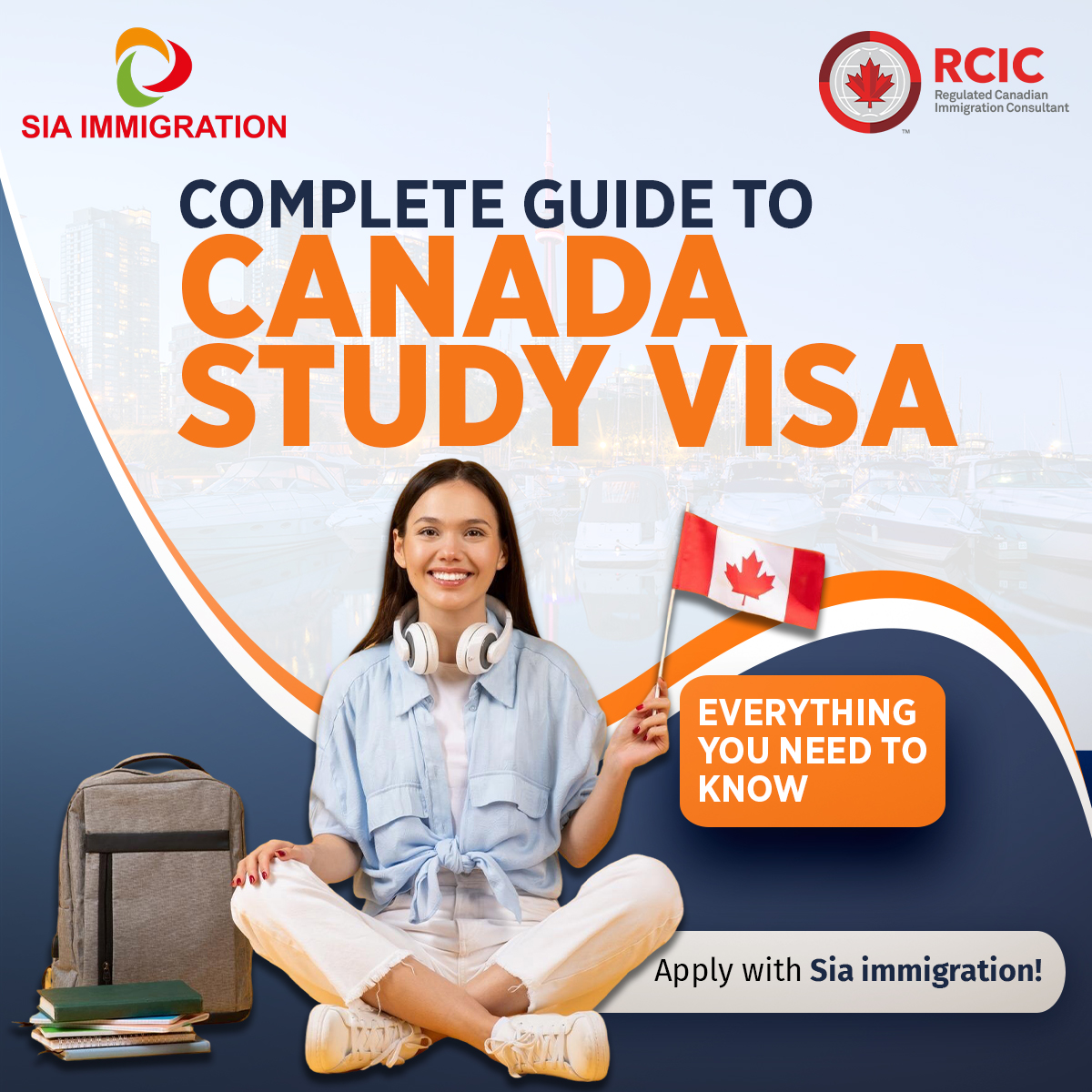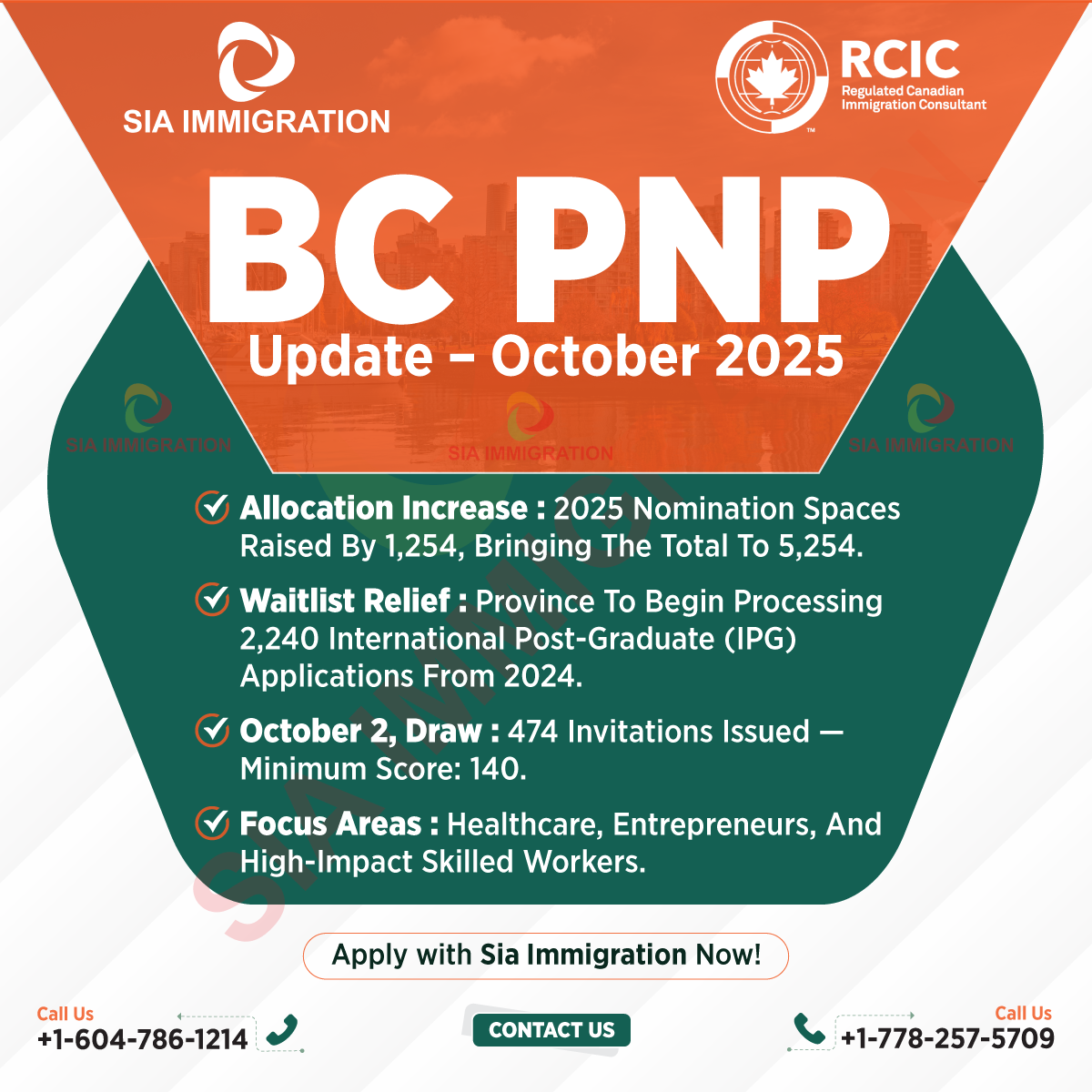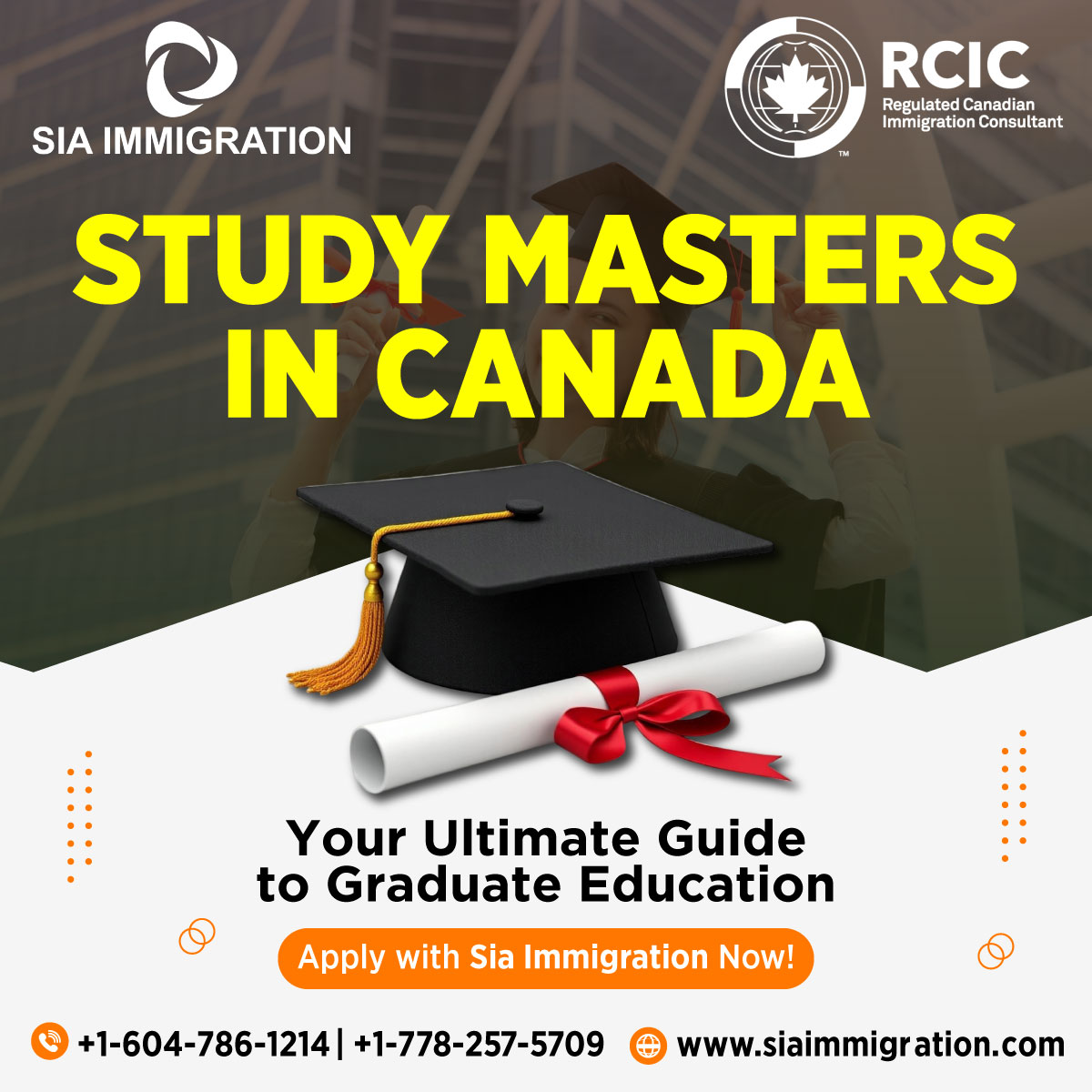- +1 (604) 786-1214 , +1 778-257-5709
- mkj@siaimmigration.com
Complete Guide to Canada Study Visa Everything You Need to Know

Complete Guide to Canada Study Visa Everything You Need to Know
Canada remains one of the world’s most sought-after destinations for international students, offering world-class education, multicultural experiences, and promising career prospects. However, navigating the study permit process requires careful preparation and understanding of the latest requirements.
What is a Canada Study Permit?
A study permit is not a visa but an official document that allows foreign nationals to study at designated learning institutions (DLI) in Canada. Most international students require a study permit to pursue education in Canada, regardless of the duration of their program.
Major Changes in 2025
Provincial Attestation Letter (PAL) Requirement
Most students must include with their study permit application a PAL from the province or territory where they plan to study. In most cases, if you apply without a PAL, your application will be returned with fees.
Study Permit Cap for 2025
The cap will be effective from January 22 to December 31, 2025. The department will only process study permit applications until the cap has been reached. After the cap has been reached, any further applications will be returned without processing and the application fees refunded.
New Requirements for Graduate Students
New to 2025, graduate-level students and most onshore students require a PAL/TAL. However, the following groups remain PAL/TAL-exempt: Certain Government of Canada priority groups and vulnerable cohorts, such as francophone students eligible for specific programs.
Eligibility Requirements
Academic Requirements
-
Be accepted by a designated learning institution (DLI)
-
Prove you have sufficient funds to pay for tuition fees, living expenses, and return transportation
-
Be a law-abiding citizen with no criminal record
-
Be in good health and willing to complete medical examination if required
Financial Requirements
Demonstrate financial capacity to cover:
-
First year tuition fees
-
Living expenses (approximately CAD 15,000 per year)
-
Return transportation costs
-
Additional expenses for accompanying family members
Language Proficiency
While not always mandatory, strong English or French language skills improve your chances of approval and academic success.
Required Documents
Primary Documents
-
Letter of Acceptance from a designated learning institution
-
Provincial Attestation Letter (PAL) from your intended province of study
-
Proof of Identity (passport or travel document)
-
Proof of Financial Support
Supporting Documents
-
Academic transcripts and diplomas
-
Language test results (IELTS, TOEFL, CELPIP, TEF, or TCF)
-
Statement of Purpose explaining your study plans
-
Medical examination results (required for students from certain countries)
-
Police clearance certificates if requested
Guaranteed Investment Certificate (GIC)
The Canada Student Visa GIC is one such requisite that demonstrates financial capacity. The GIC requires a deposit of CAD 20,635 for 2025, which covers your living expenses for the first year.
Benefits of GIC
-
Streamlined processing under Student Direct Stream (SDS)
-
Faster visa processing times
-
Demonstrates genuine financial commitment
-
Provides financial security upon arrival
Application Process Step-by-Step
Step 1: Secure Admission
Apply to designated learning institutions and obtain an official letter of acceptance.
Step 2: Obtain Provincial Attestation Letter
Contact the provincial government of your intended study destination to obtain your PAL.
Step 3: Gather Required Documents
Collect all necessary documents, ensuring they meet current requirements and are properly translated if needed.
Step 4: Create Online Account
On the official Immigration, Refugees and Citizenship Canada (IRCC) website, click to create your account and begin the application process.
Step 5: Complete Application
Fill out all forms accurately and completely, ensuring all information matches your supporting documents.
Step 6: Pay Fees and Submit
Pay the required fees and submit your application online.
Step 7: Provide Biometrics
Attend a biometrics appointment if required.
Step 8: Medical Examination
Complete medical examinations if requested, particularly required for Indian students and those from certain countries.
Processing Times and Fees
Current Processing Times
-
Study permit processing: 4-12 weeks (varies by country of residence)
-
Biometrics processing: Additional 2-3 weeks
-
Medical examination: Additional 1-2 weeks if required
Application Fees (2025)
-
Study permit: CAD 150
-
Biometrics fee: CAD 85
-
Medical examination: CAD 450-600 (varies by country)
Work While Studying
International students with valid study permits can work while studying:
-
On-campus work: Unlimited hours with valid study permit
-
Off-campus work: Up to 24 hours per week during studies, full-time during scheduled breaks
-
Co-op programs: Work permits available for mandatory work placements
To qualify, you must have a valid study permit and be a full-time student. You will also need a Social Insurance Number (SIN) from Service Canada to work in Canada.
Post-Graduation Opportunities
Post-Graduation Work Permit (PGWP)
Graduates from eligible programs can apply for work permits allowing them to gain valuable Canadian work experience.
Permanent Residency Pathways
Canadian education and work experience significantly improve your chances of obtaining permanent residency through various programs:
-
Express Entry System
-
Provincial Nominee Programs
-
Canadian Experience Class
Tips for Success
Application Best Practices
-
Start Early: Begin your application process at least 4-6 months before your intended start date
-
Be Thorough: Ensure all documents are complete, accurate, and properly formatted
-
Stay Updated: Immigration requirements can change; always check the official IRCC website
-
Professional Assistance: Consider consulting with licensed immigration consultants for complex cases
Financial Planning
-
Budget for unexpected expenses
-
Understand exchange rate fluctuations
-
Explore scholarship and funding opportunities
-
Consider part-time work opportunities
Academic Preparation
-
Research your chosen program thoroughly
-
Connect with current students and alumni
-
Prepare for Canadian academic culture and expectations
-
Plan for potential language support services
Common Challenges and Solutions
Document Authentication
Ensure all documents are properly notarized, translated, and authenticated as required by Canadian standards.
Financial Proof
Maintain consistent bank statements showing stable funds for at least 4-6 months before application.
Purpose Statement
Write a compelling statement of purpose that clearly explains your academic goals, career plans, and ties to your home country.
Conclusion
Securing a Canada study permit requires careful planning, attention to detail, and thorough preparation. The 2025 changes, including PAL requirements and application caps, make it more important than ever to start your application early and ensure all requirements are met.
With proper preparation and the right approach, your Canadian education journey can begin smoothly, opening doors to world-class education and exciting future opportunities. Stay informed about the latest requirements, and don’t hesitate to seek professional guidance when needed.
Your study permit will become invalid 90 days after you have completed your studies, so plan your next steps accordingly, whether that’s applying for a PGWP or returning to your home country with valuable Canadian qualifications.












